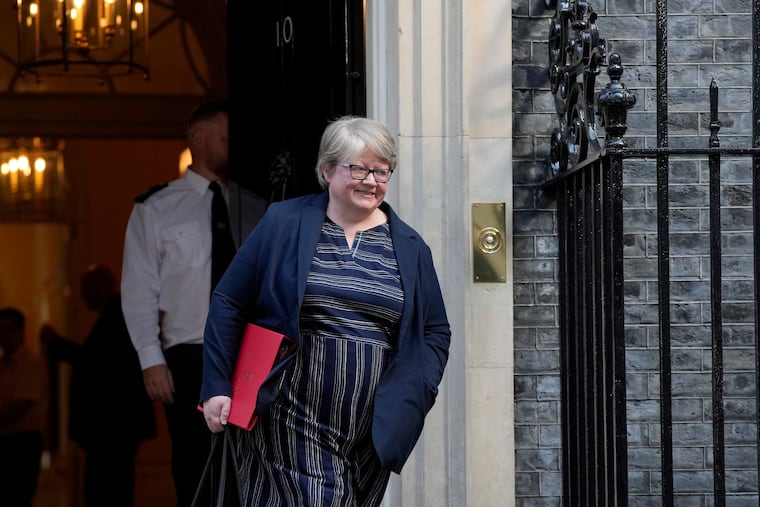Oxford commas are divisive, distracting and unnecessary
“Red, white and blue” is functionally equivalent to “red, white, and blue,” but the latter wastes everyone’s time with its superfluous pause.

Last month, news broke that Thérèse Coffey, the new U.K. health secretary, had instructed staffers at the Department of Health and Social Care and the U.K. Health Security Agency that, if they’re communicating with her, they shouldn’t use Oxford commas.
In the words of an American: It’s about bloody time.
For those who may have unwittingly stumbled onto a grammar column, a brief primer: An Oxford comma is the comma that appears before the word and in a list of three or more things — the comma after white in “red, white, and blue.”
And they’re the downfall of society.
Oxford commas are divisive. These puny punctuation marks inspire rabid supporters and detractors, each unwaveringly convinced that they are superior. Newspapers tend to forgo the Oxford comma (including the Associated Press, whose style guidelines are followed by most American newspapers), but The Inquirer abides by it (much to the chagrin of its resident grammar columnist).
» READ MORE: Banning the word ‘literally’ is George W. Bush’s next war | The Grammarian
Fortunately, the Redcoats are coming to show us the light, with the best English innovation since … English. Thank you, Secretary Coffey.
Oxford commas weaken writing for one simple reason: They’re unnecessary, and therefore make sentences less concise than they could be. Less is more — a rule that also applies to punctuation. “Red, white and blue” is functionally equivalent to “red, white, and blue,” but the latter wastes everyone’s time with its superfluous pause.
“But what about when you need them?!” the Oxfordians cry. I’m not myopic. Of course there are times when you need that comma.
Take the sentence “I’d like to thank my parents, Superfly and Jesus.” The lack of Oxford comma implies that Superfly and Jesus are my parents, which is, sadly, incorrect. An extra comma would help.
But a nearly identical example illustrates how the same comma can inhibit clarity rather than enhance it: “I’d like to thank my best friend, Superfly, and Jesus.” The Oxford comma after Superfly suggests that Superfly is my best friend, which is also incorrect. (Don’t tell Superfly. Or Jesus, for that matter.)
Or observe the sentence “For lunch I had peanut butter and jelly, macaroni and cheese, and steak and eggs.” Yes, you need a comma after macaroni and cheese, but more important, you need to get your cholesterol checked.
That extra pause is a chance for readers to get distracted by a gust of wind or a baby squirrel or a pop-up ad. Good writing gives readers as few reasons to stop reading as possible. The more that readers stop, the less likely they are to restart. Over time, they’ll read less, eventually becoming illiterate. Newspapers — beacons of a democratic society, which have been under siege for years now — will go out of business. Without the watchdog of a free press, our country crumbles.
Good writing gives readers as few reasons to stop reading as possible.
All because you wanted a snobby, too-precious comma.
But there’s another way. Be a patriot; omit the Oxford comma.
Do it for the country. Do it for the children.
Do it for the red, white and blue.
The Grammarian, otherwise known as Jeffrey Barg, looks at how language, grammar, and punctuation shape our world, and appears biweekly. Send comments, questions and serial commas to jeff@theangrygrammarian.com.